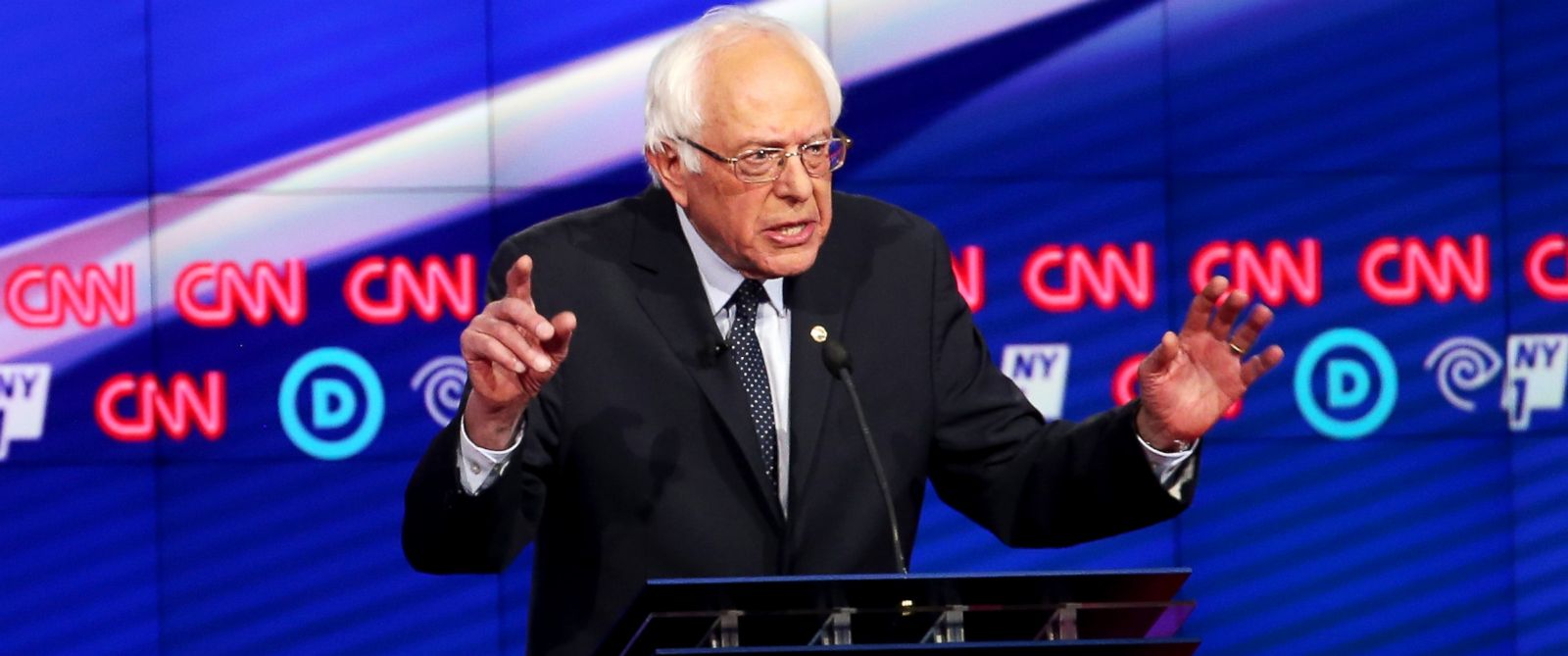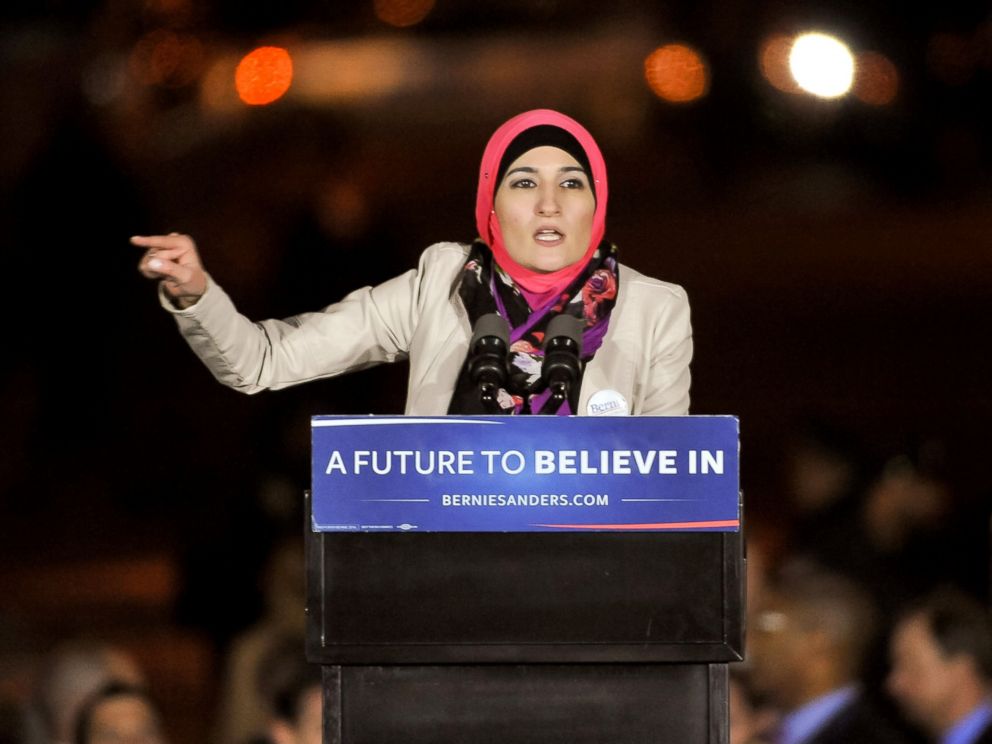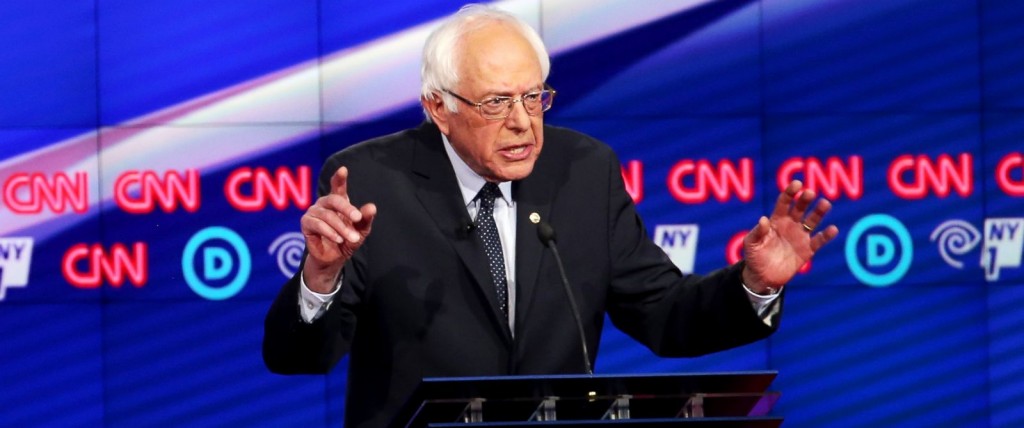Bernie Sanders’ Debate Remarks on Israel Still Resonating

One of the most remarkable moments in Thursday night's Democratic Party debate happened when the discussion about Israel came front and center.
Sen. Bernie Sanders did something that Mideast experts and advocates on either side have never seen someone in his position do before: take a public stand for the rights of Palestinian people on such a national stage.
"The way Sanders humanized the Palestinians is, frankly, remarkable for a major presidential candidate," Sarah Yerkes, a visiting fellow at the Brookings Institution.
During the debate, Sanders labeled himself "100 percent pro-Israel in the long run" but also went on to highlight the unemployment rates in Palestinian-governed Gaza, as well as poor health care and education systems.
"That does not make me anti-Israel. That paves the way, I think, to an approach that works in the Middle East," he said.
A Look Back at Donald Trump's Tumultuous Relationship With Jewish Voters
But the CEO of the Anti-Defamation League accused Sanders of "play[ing] into the image that Israel is the main problem to the conflict."
"I think Secretary Clinton had it right when she noted that Palestinian leadership has repeatedly rejected U.S.-brokered compromises that could have already created a two-state solution," Jonathan Greenblatt told.
The ADL, a non-profit Jewish advocacy group, supports a two-state solution.
Sanders has made similar comments before. He was the only presidential candidate not to attend the conference hosted by the American Israel Public Affairs Committee (AIPAC) in March, opting to campaign out West instead where there were upcoming primaries.
His campaign released an online video of his delivering the speech he would have given at the Washington, D.C., conference, which he gave in Utah instead. The sentiment was similar to what he said on stage Thursday night.
The Tuesday night comments were also not the first time Sanders has drawn criticism from the ADL. They called for, and later received, a clarification from Sanders about the number of Palestinian deaths there were in the Gaza War.
Greenblatt spoke to him during the incident, which happened last week.
"In the narrow sense, he corrected his misstatement but in the broader sense, he continues to mischaracterize the conflict and misattribute the solution," Greenblatt told.
Yerkes noted that Sanders' criticisms weren't left solely for the Israelis.
She said he was "really just hammering this point that the United States needs to take a more balanced approach both to Israeli security and to prevent further Palestinian suffering."
"He's not only putting the blame on Israel, which he clearly did, but also noting that there is a U.S. role here," Yerkes told.

For his supporters, like Linda Sarsour, the comments were "very admirable" and show a "balanced" view.
"What Sen. Sanders remarks demonstrated is how right, [as in] conservative right, we are as a nation that we found it so radical and revolutionary that a man can say that the Palestinian people deserve to be treated with dignity and respect," Sarsour, the co-founder of the Muslim Democratic Club of New York, said.
Sarsour has been campaigning with Sanders and was in the spin room on his behalf after the debate Thursday. She said she thinks she may have been "the first Muslim woman in a hijab in a spin room on behalf of a presidential campaign."
Political analyst Matt Dowd, it was the location — the debate stage in Brooklyn — and timing — just days before the New York primary — that struck him.
"It was a pretty brave move on his part," Dowd said.
"I don't think it's necessarily helpful in the primary but it does show that he's willing to take a stand even if it hurts him politically," Dowd said, noting the considerable number of Jewish voters in New York City.
Политика конфиденциальности | Правила пользования сайтом








